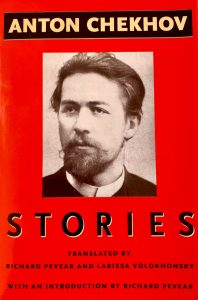In one of his lectures collected in the slim volume titled “Ray Bradbury: On Writing,” Bradbury talks about young people dreaming of writing a novel. His advice? Start small. Don’t start with a novel, which will take a long time to write, only to find out at the end it wasn’t good enough.
On Writing
Practice your skills, learn how to write by writing short stories. Write one short story a week. You’ll have the satisfaction of completing something in a relatively short period of time, and you’ll learn a lot. You’ll learn to compact things; to look for ideas; to see a metaphor, and how to write it. At the end of the year, there should be at least one good story. And you’re learning the craft.
Write What You Want to Read
Write what you want to read. Write about what you love, what you hate; write about what you fear; write with joy and abandon. Writing should be fun, not a chore.
Writing is not a serious business. It’s a joy and a celebration. You should be having fun at it. (…) I’ve never worked a day in my life. The joy of writing has propelled me from day to day and year to year. I want you to envy my joy.

On Reading
As a writer, you should write a lot, and read a lot, too. The library is your school of writing, as it was his. Ray Bradbury never went to college; he couldn’t afford it. But he went to the library several times a week and, in his words, “graduated from the library”.
I want you to live the fever pitch. I want you to go to the library. The great thing about libraries is surprise, isn’t it? To pull books off the shelf and not know what they are (…).
What Should You Read?
Read and learn from the best. Every night, before going to bed, read one short story, one poem, one essay from various fields. Do this for a thousand nights, and you’ll have a solid education.
Ray Bradbury’s Recommended Reading
Short Stories
Short Stories
- Roald Dahl
- Guy De Maupassant
- John Cheever
- Richard Matheson
- John Collier
- Edith Wharton
- Katherine Anne Porter
- Eudora Welty
- Washington Irving
- Melville
- Edgar Allan Poe
- Nathaniel Hawthorne
Essays
Poems
- Aldous Huxley
- Loren Eiseley
- George Bernard Shaw
- G. K. Chesterton
Go back and read the classics.
- Shakespeare
- Alexander Pope
- Robert Frost
My Reading Education
I grew up in a home where there weren’t many books, but the ones we had were all classics. There was a book series collecting the classic works of both Romanian and foreign authors of all time. That was a gold mine for a child with an inquisitive mind, thirsting for knowledge, curious about everything. My parents didn’t forbid me to read any books; thankfully, they didn’t practice age-appropriate reading.
So I grew up reading Jules Verne, Daniel Defoe, and Mark Twain’s children’s books. In fact, my sister read them to me before I could read them myself. You could say I was primed for reading (thank you, sis!).
But I also read Balzac, Dickens, Leo Tolstoy, W. M. Thackeray, Emily Brontë, and Charlotte Brontë. I probably read Anna Karenina, Vanity Fair, Wuthering Heights, and Jane Eyre a dozen times before I went to university.

At the university, we were required to read the classics. I was one of the few students who actually read the whole list.
They’re classic for a reason: they’re well written and show us the universal in people, humanity, our world. They endured hundreds, if not thousands, of years. Which best-sellers of today would still be best-sellers in fifty years?
Long story short, reading classic works is a good, free education. I would add Anton Chekhov, Sake, and Katherine Mansfield to Bradbury’s list of short stories.
I leave you with the best quote from this lecture (The Hygiene of Writing).
Don’t live on your god damned computers and the internet and all that crap. Go to the library.
Related Posts
- The Best Books I Read in 2020
- How To Handle Creative Blocks & Avoid Distraction
- Writing Lately
- Just Squander Yourself
- The Theory Of Willlessness